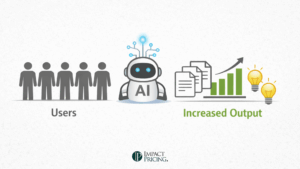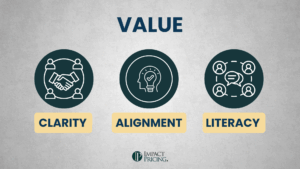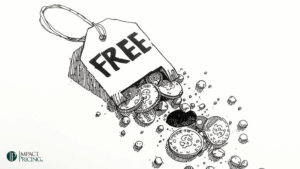Question: I’ve listened to (and enjoyed very much) some of Mark’s pricing podcasts as well as have attended the Pricing Pragmatic marketing course, which was excellent. I have a question, and something I am struggling with in our organization right now. We are going to offer an Annual Subscription for our SaaS platform. My question is, do we offer a Monthly option that is really an Annual contract but paid Monthly? Or do we do a true Monthly Subscription where users can cancel at any time. We are in the legal industry so I’m sure there are biases based on that. What do you recommend? What are the pros and cons of either option? I would love to hear any thoughts. Thank you!! A.
Answer: Brilliant question. Every subscription company probably struggles with this. Let’s break the answer into two parts: commitment and payment.
Comparing Monthly Versus Annual Contract Lengths
For commitment, think of contract length. Do you want them to commit for a year or a month? Well, the obvious answer might be commit for a year, but I would lean more towards commit for a month if possible. Committing for a year probably costs 12 times more than the monthly commitment. It’s harder to get a customer to buy. Also, in my mind, offering an annual option only indicates that you aren’t confident enough in your product that people will want to leave quickly.
With an annual commitment, it will be harder to acquire new customers, but your retention will be higher. The reason is that the ones who buy are the ones who can justify the bigger commitment. They are less likely to leave you.
Monthly Subscribers Will Demand a Valuable Product
With a monthly commitment, you MUST be dedicated to making your product valuable to your customers. If it’s not, they will leave. You will want a customer success department holding their hand, especially during the onboarding process. This forces you to create an even better product.
The main reason to go with an annual commitment would be if there is a large cost to you to bring a new customer into the fold and you want to make sure that cost gets covered. You don’t want customers trying for a month and then leaving if you have a big upfront investment for them. Another option in this case is to charge an implementation fee. However, a large implementation fee has the same downside in that it creates a bigger hurdle to win a new customer.
Navigating Cash Flow and Churn Rate
Now, let’s talk payment. There are a couple issues here, cash flow and unnecessary churn. One of the big downsides to subscription business is the cash flow gets stretched out. Offering a discount to get someone to pay for the year up front helps solve that problem. You bring in more cash up front. A common discount is 12 months for the price of 10.
Offering the annual price also reduces churn. Obviously the customer committed for a year, but more importantly, when you charge a credit card every month, some credit cards expire or are cancelled due to fraud. It becomes a hassle to get these customers to give you a new card. If a customer doesn’t give you a new card, think of that as unnecessary churn. The customer would have kept paying, but now that they have to jump through another hoop, they rethink their decision and choose not to renew.
Some B2B customers don’t want the hassle of monthly billing. They would rather pay it up front and get it over with. You want to be sure to give them that option.
To summarize, I prefer monthly commitments and monthly payments with a discount for an annual payment. This makes it easy for people to buy from you, forces you to create a valuable product, while doing a little to reduce churn and cash flow pain.
Hope that helps.














